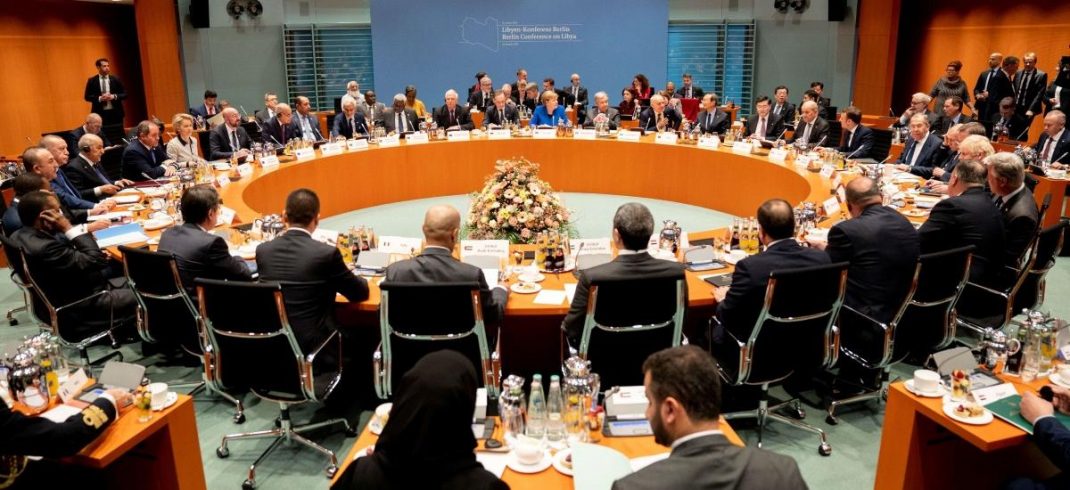Kamel Abdallah

The Western powers are trying to steer Libya towards elections against a background of important differences among Libyan stakeholders and participants in the UN process.
The West is once again confronted with the problem of how to advance the UN drive to steer Libya to long-awaited elections.
Despite repeated resets of interim phases in this process, Western mediating efforts have yet to be crowned with any noteworthy success.
On 16 March, the UN Security Council adopted a presidential statement in support of the plan proposed by Abdoulaye Bathily, Special Representative of the Secretary-General (SRSG) for Libya and head of the UN Support Mission in Libya (UNSMIL), to launch a High Level Panel to facilitate progress towards developing the constitutional and legal frameworks for presidential and parliamentary elections in the country and to assist in creating a safe environment for them.
The statement reiterated a warning that all who attempt to obstruct or undermine the political process or the elections in Libya will risk sanctions. The fact that it came more than two weeks after Bathily’s Security Council briefing in which he outlined his proposed plan is a sign that the main powers in the UN body are still at odds over how to resolve the Libyan conflict.
The statement was also not consistent with the changes that had been introduced to the incomplete plan, according to US Special Envoy to Libya Richard Norland in an interview on Libyan television on 16 March.
On the eve of Bathily’s briefing, the Libyan House of Representatives (HoR) in Tobruk and the High Council of State (HCS) in Tripoli adopted a controversial 13th amendment to the 2011 Libyan Transitional Constitutional Declaration that defines the roles of the president, prime minister, and parliament and a constitutional path to elections.
With this amendment, the two authorities deferred their differences over the eligibility criteria for the presidential elections to the phase of drafting the electoral laws, thereby facilitating the task of formulating the constitutional basis for the elections. The HoR and HCS then agreed to form a joint 6+6 committee to deliberate on the required constitutional and legal provisions.
Bathily had little alternative but to bow to these decisions, even though originally he had a different concept for the High Level Panel.
In his 27 February briefing, he had told the Security Council that the proposed mechanism would include representatives of Libyan political institutions, tribes, civil society, women and youth and would be tasked with drafting the constitutional basis and electoral laws for the elections and reaching a consensus around related matters, such as security and the adoption of a code of conduct for all candidates.
The actions by the HoR and HCS effectively preempted this, and when combined with the lack of enthusiasm among the international powers for Bathily’s plan as well as the US declaration of support for the HoR’s and HCS’s actions, he was forced to recalibrate a plan that had essentially been an attempt to circumvent the HoR and HCS.
In a press conference in Tripoli on 11 March, Bathily said that the High Level Panel would serve as a consultative body for the joint committee that the HoR and HCS would form. “The UNSMIL team and I stand ready to support the 6+6 in any way (technical, human resources, logistics) to accomplish their tasks,” he said.
His proposed Panel, once it has been selected by local stakeholders, will work together with the Libyan security authorities and presidential and parliamentary candidates to generate and sustain a safe environment conducive to the elections.
Although the US had accepted the HoR’s and HCS’s 13th amendment and decision to create a 6+6 committee, it still hoped to curb Libyan opposition to the UN plan and to push for the completion of the constitutional basis for the elections.
On 2 March, Norland tweeted that Bathily’s proposed “elections-enabling mechanism is galvanising the Libyan body politic and will build on progress made between the HoR and HSC on the legal basis for elections. We urge key Libyan leaders to approach the SRSG’s plan in a constructive spirit. Now is an opportunity for them to show that they are truly dedicated to serving the needs of the Libyan people.”
In his 11 March press conference, Bathily gave the 6+6 committee until the end of June to agree on the constitutional basis and electoral laws. However, he did not discuss what action he might take if the HoR and HCS did not resolve these matters by that deadline.
The UN anticipates that the two authorities will fail, which would automatically abrogate the 13th amendment.
On 26 February, UN Secretary-General Spokesman Farhan Haq told reporters that the UN had other alternatives it could implement in the event that the Libyans failed to reach a consensus on the constitutional basis and electoral laws, though he did not mention what these might be.
Despite their differences, the key political forces in Libya appear to be tacitly agreed on deferring the elections, even if they claim otherwise. Their actions since last year have been more telling than words.
Afterwards, instead of focusing on the elections, the political forces moved to reconstitute Libya’s executive authority (the Presidential Council and the cabinet). The ostensible justification for this was the return to institutional bifurcation after the HoR withdrew confidence from the Government of National Unity (GNU) led by Abdel-Hamid Al-Dbeibah and designated Fathi Bashagha as prime minister in February 2022, with the result that the GNU could not assert its authority over the whole country.
Elections could not be held under such conditions, the political forces argued, even though the June 2014 elections had taken place amid a political rift and military operations.
It was also surprising to see the political stakeholders reverse their positions on a number of issues. For example, when originally voted into power, the HoR held that dual nationals should not be allowed to run for president, a stance that led to the dismissal of many officials in 2014 and 2015.
The HoR’s predecessor the General National Conference (GNC) held the opposite view. Today, the HoR holds that dual nationality should not disqualify a potential presidential candidate, whereas the HCS (which evolved from a reconstituted GNC) thinks it should.
At his press conference, Bathily did not address how the members of the High Level Panel would be chosen, but he did outline the panel’s duties as a consultative entity on “critical issues that need to be addressed for the elections to take place and be successful.”
The mechanism “will operate in a flexible and dynamic manner. It is designed to engage the major stakeholders constructively around the main issues to enable inclusive, secure, peaceful, and fair elections this year, to meet the expectations of the people of Libya,” he said.
“The actors of the High Level Panel will not be designated or selected by UNSMIL.
The stakeholders and constituencies concerned with the different subject matters will designate who will speak on their behalf in the course of my shuttle diplomacy between the Libyan actors.
This is to say that the players on the ground who are concerned with different issues will be requested to negotiate directly or through their representatives. UNSMIL will facilitate the negotiations to secure compromises.”
If Bathily is to succeed in propelling his plan forward, he will need stronger support from the Western powers. But this would also require them to unify their positions on the political arrangements they envision.
_____________________




